Delta-9 THCA is a non-psychoactive cannabinoid found in raw cannabis plants that has been legalized for recreational use in Oregon. Consumers can enjoy the potential health benefits of THCA by using it responsibly within the state's regulations, which include possessing up to 16 ounces of usable cannabis and cultivating no more than four mature or eight immature plants at home. It's crucial for users to consume THCA flowers in private settings and not in public, and to never drive under its influence. Oregon's agricultural industry has embraced the cultivation of THCA-rich cannabis flowers, leveraging the state's favorable climate to produce these products legally. Cultivators must carefully manage their crops to preserve the THCA content, ensuring they harvest at the right time and handle the plants properly to avoid converting THCA into THC, which would change the product's legal status. By following state guidelines and local ordinances, both consumers and producers can engage with Oregon's THCA market safely and compliantly.
Explore the burgeoning benefits of THCA flower, a non-psychoactive compound found in cannabis that has garnered attention for its potential wellness applications. This article illuminates the advantages of THCA, particularly within the legal framework of Oregon. Delve into the science that distinguishes THCA as a legal, beneficial substance in this state, and compare its effects to those of Delta-9 THC. Understand the therapeutic attributes of raw cannabis through scientific evidence and learn how to consume THCA safely and legally in Oregon. For those with a green thumb, discover insights on cultivating your own THCA-rich flowers tailored to Oregon’s unique climate. Join us as we unravel the potential of THCA flower, a natural marvel that promises to enrich Oregon’s cannabis landscape.
- Unlocking the Potential of THCA Flower: A Comprehensive Guide for Oregon Residents
- The Science Behind THCA: What Makes It Legal and Beneficial in Oregon
- THCA Flower vs. Delta-9 THC: Understanding the Differences and Health Implications
- Exploring the Therapeutic Properties of Raw Cannabis: The Case for THCA
- How to Safely Consume THCA Flower in Compliance with Oregon Regulations
- Cultivating and Harvesting Your Own THCA-Rich Flowers in Oregon's Climate
Unlocking the Potential of THCA Flower: A Comprehensive Guide for Oregon Residents
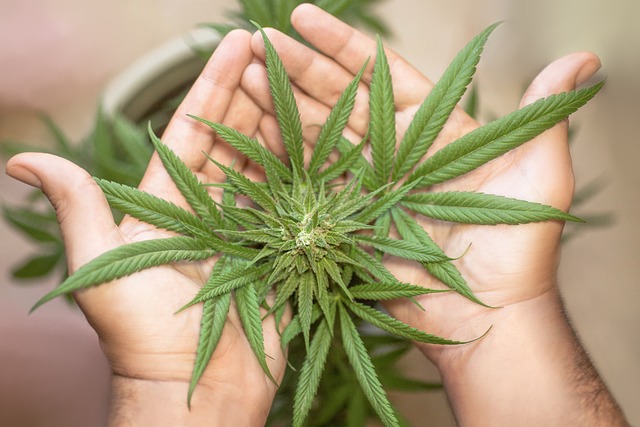
Oregon residents interested in exploring the potential benefits of cannabis may find THCA (Tetrahydrocannabinolic Acid) flowers particularly intriguing, given their unique status under state law. Unlike its psychoactive counterpart THC, THCA is non-psychoactive and offers a range of wellness benefits. This guide aims to elucidate the properties of THCA legal in Oregon and how residents can utilize this compound for its potential therapeutic effects.
THCA flowers are prized for their rich cannabinoid profile and have been studied for their anti-inflammatory, neuroprotective, and analgesic properties. These benefits make them a popular choice among consumers seeking natural alternatives for pain relief, stress management, and overall wellness. In Oregon, where the use of recreational cannabis is legal, THCA flowers have gained attention as a versatile and potent source of these compounds, with users reporting positive experiences with its effects. Residents curious about incorporating THCA flowers into their wellness routine should first consult with healthcare professionals to understand the best practices for consumption and dosage, ensuring a safe and beneficial experience. With a burgeoning market for cannabis products, Oregonians have access to a variety of THCA flower strains, each offering distinct characteristics that can cater to different preferences and needs. Understanding how to properly store and handle these flowers is also crucial to preserve their potency and ensure the highest quality experience. As such, this guide serves as an invaluable resource for Oregon residents looking to explore the myriad benefits of THCA flowers within the legal framework established by state regulations.
The Science Behind THCA: What Makes It Legal and Beneficial in Oregon
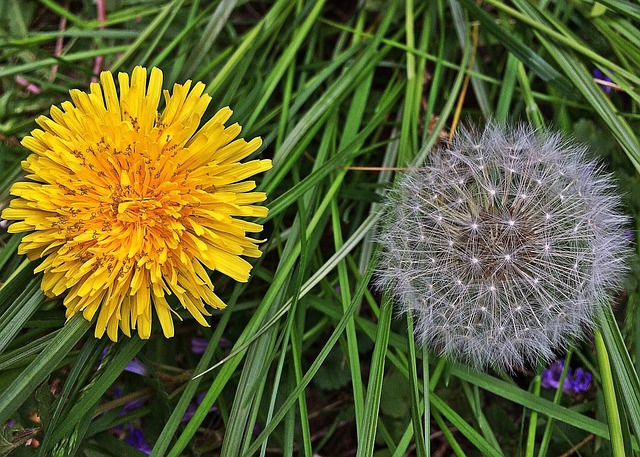
Delta-9-tetrahydrocannabinol (THC) is well-known for its psychoactive properties, but before it reaches this form through heat, there’s another cannabinoid that holds considerable interest: tetrahydrocannabinolic acid A (THCA). THCA is the raw, non-psychoactive precursor to THC found in cannabis flowers. In Oregon, where the use and possession of cannabis are regulated under state law, THCA exists in a legal grey area due to its lack of psychoactivity. This makes products rich in THCA an attractive alternative for those seeking potential health benefits without the ‘high’ associated with THC.
The science behind THCA is intriguing. Research suggests that THCA may possess anti-inflammatory, antibacterial, and neuroprotective properties. In vivo studies have indicated that THCA could modulate immune responses and reduce inflammation, making it a potential therapeutic agent for conditions like arthritis. Additionally, its interaction with the body’s endocannabinoid system may offer benefits for anxiety, nausea, and pain relief. In Oregon’s legal landscape, where both medical and recreational cannabis are sanctioned under strict guidelines, THCA products are gaining traction among consumers who are keen to explore the potential wellness benefits without the psychoactive effects of its decarboxylated counterpart, THC. This has led to a variety of THCA-rich products being offered in dispensaries across the state, catering to a diverse range of consumer needs and preferences within the legal framework established by Oregon law.
THCA Flower vs. Delta-9 THC: Understanding the Differences and Health Implications

Delta-9 tetrahydrocannabinol (Delta-9 THC) and tetrahydrocannabinolic acid (THCA) are both active compounds found in cannabis plants, yet they exhibit distinct properties and health implications. THCA is the raw form of Delta-9 THC, present in raw cannabis or cannabis that has not undergone the decarboxylation process, typically through heating. In states like Oregon where THCA flowers are legal, consumers have access to these non-psychoactive buds that offer a range of potential wellness benefits without the traditional ‘high’ associated with Delta-9 THC.
THCA flowers, rich in cannabidiol (CBD) and other beneficial cannabinoids, have been observed to support overall health and well-being. Unlike Delta-9 THC, THCA does not bind as strongly to the CB1 receptors in the brain, which are responsible for the psychoactive effects of cannabis. Instead, it is believed to interact more with the CB2 receptors found in the peripheral nervous system and immune cells. This interaction may offer anti-inflammatory, neuroprotective, and potentially gastroprotective benefits without the mind-altering effects, making it an appealing option for individuals seeking wellness support during the day or those who wish to avoid psychoactive experiences. The legal status of THCA in Oregon allows consumers to explore its potential health benefits legally, providing a clear pathway for research and personal experimentation within the bounds of the law.
Exploring the Therapeutic Properties of Raw Cannabis: The Case for THCA
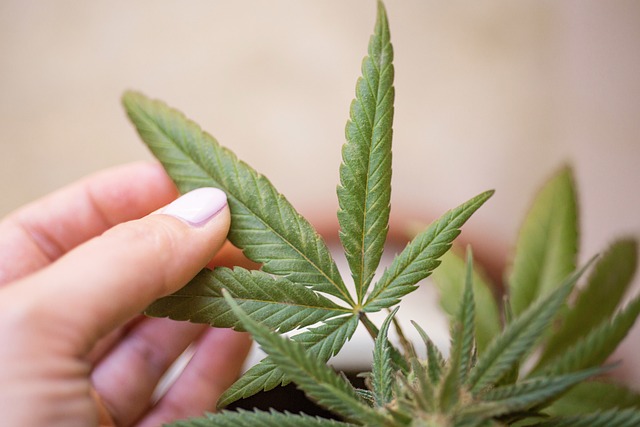
Raw cannabis contains THCA, or tetrahydrocannabinolic acid, which is the precursor to THC, the psychoactive compound found in cannabis. Unlike its psychoactive counterpart, THCA is non-psychoactive and is gaining attention for its potential therapeutic properties. In the context of legal frameworks, Oregon stands out as a state where the use of raw cannabis is permitted under certain conditions, opening up avenues for research and personal exploration into its benefits. Preliminary studies suggest that THCA may offer anti-inflammatory and neuroprotective effects, potentially beneficial for conditions ranging from chronic pain to neurodegenerative diseases. The legal status of THCA in Oregon allows consumers and researchers to experiment with and investigate the raw form of cannabis without the psychotropic side effects associated with its decarboxylated counterpart. This presents a unique opportunity to understand the distinct health implications of THCA, which could complement existing therapeutic regimens or offer new avenues for wellness. As such, the exploration of THCA’s potential within the legal landscape provided by Oregon is an intriguing area of interest for both medical professionals and patients seeking alternative treatments.
How to Safely Consume THCA Flower in Compliance with Oregon Regulations
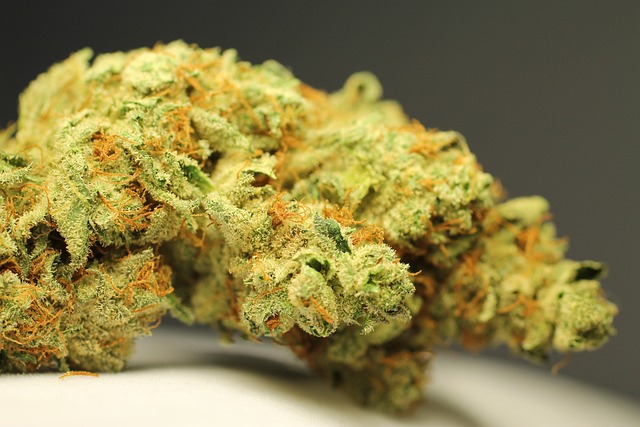
In Oregon, where THCA flower has been legalized for recreational use, consumers must navigate consumption within the bounds of state regulations to ensure a safe and compliant experience. THCA, or tetrahydrocannabinolic acid, is the raw form of THC found in cannabis plants before it’s heated to transform into THC. To safely consume THCA flowers in Oregon, it’s crucial to understand that smoking or vaporizing are the most common methods. When choosing to smoke THCA flowers, one should use a clean pipe, bong, or vaporizer, ensuring that the equipment is not shared with others to adhere to social distancing guidelines and avoid the potential spread of pathogens. Dosing should be approached with caution; starting with a lower dose and waiting for its effects to take full effect before consuming more is prudent. Additionally, Oregon’s regulations stipulate that adults 21 years and older can possess and use THCA flowers in private settings, but they must be kept out of reach of children and pets. Always verify the legality of THCA products at your specific location within Oregon, as local ordinances may vary. Consumption in public places remains prohibited under state law, so it’s essential to consume THCA flowers responsibly and legally.
Furthermore, Oregon’s regulations also dictate the allowable quantities for possession and cultivation, with a limit of 16 ounces of useable cannabis (including THCA flower) in a private residence and up to four mature plants, or eight immature plants, for personal use. It’s important to keep all cannabis products securely stored to prevent unauthorized access, as possessing more than the state-allowed limit can result in legal consequences. Additionally, driving under the influence of THCA is illegal, and it’s imperative to consume responsibly and never operate a vehicle or machinery while impaired. Always stay informed on the latest regulations to ensure compliance with both state and local laws regarding the consumption of THCA flowers.
Cultivating and Harvesting Your Own THCA-Rich Flowers in Oregon's Climate
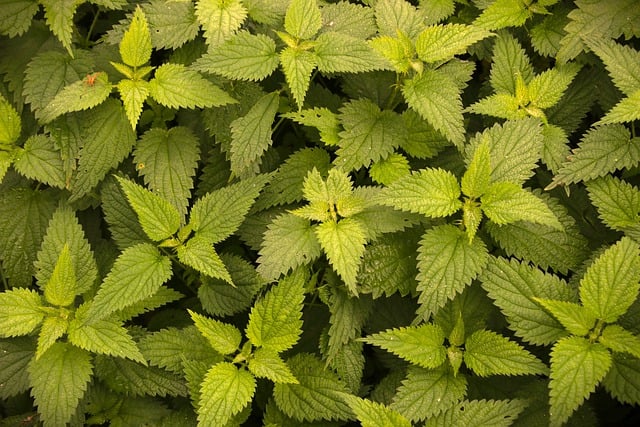
In Oregon, cultivating THCA-rich flowers has become a practice that is both permitted under state law and increasingly popular among enthusiasts looking to harness the potential wellness benefits of raw cannabinoids. The Pacific Northwest’s climate, characterized by moderate temperatures and ample rainfall, provides an ideal environment for the growth of cannabis plants rich in tetrahydrocannabinolic acid (THCA), a non-psychoactive precursor to THC found in raw cannabis flowers. To successfully cultivate these plants, one must adhere to Oregon’s specific agricultural guidelines, ensuring that the crop is grown within legal boundaries and in compliance with local regulations. The growing season in Oregon allows for both indoor and outdoor cultivation, with outdoor operations benefiting from the region’s long days of sunlight during the summer months. When harvesting THCA-rich flowers, timing is crucial; the flowers should be picked before the plant has undergone the ripening process that converts THCA into THC, which is subject to different legal considerations. Care must be taken to avoid exposure to excessive heat or light post-harvest, as this can also convert THCA into THC, altering the chemical profile and potentially the legality of the product under Oregon’s laws. By following best practices for cultivation and harvesting in Oregon’s climate, growers can produce THCA-rich flowers that capture the unique therapeutic properties associated with raw cannabis.
THCA flower holds a promising place within the legal cannabis landscape of Oregon, offering distinct benefits that differentiate it from its psychoactive counterpart, Delta-9 THC. The unique properties of THCA have sparked interest among residents for both medicinal and recreational purposes, thanks to its potential therapeutic effects and compliance with state regulations. This article has demystified the science behind THCA’s legality in Oregon and provided a guide for safely consuming this raw cannabinoid. Whether through cultivating your own plants or purchasing from licensed dispensaries, understanding the nuances of THCA flower can enhance one’s experience while respecting Oregon’s regulations. As research continues to unfold its potential, it’s clear that THCA is a burgeoning area of interest for health and wellness enthusiasts in the Beaver State.
